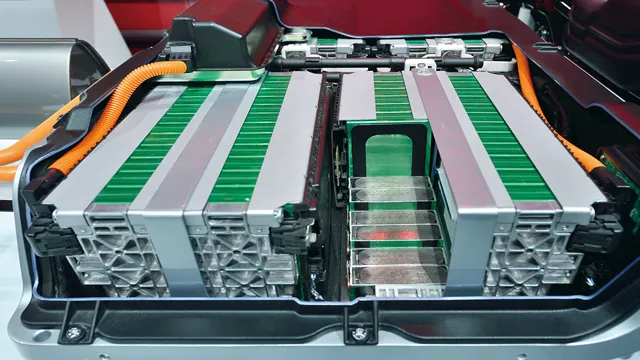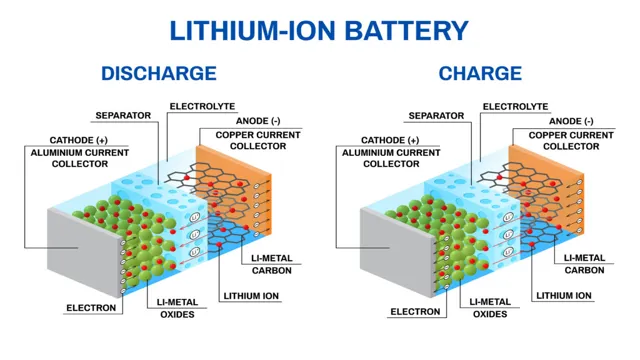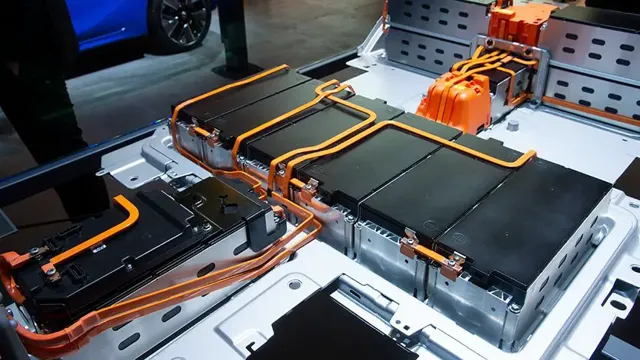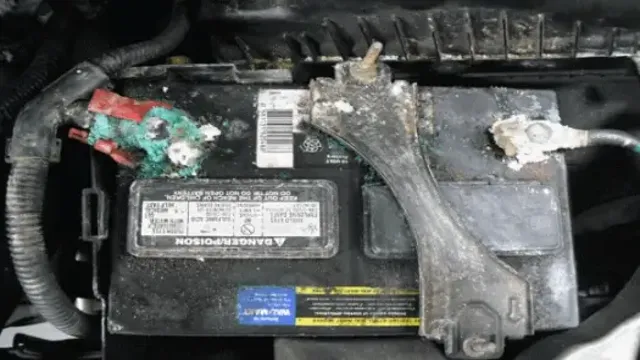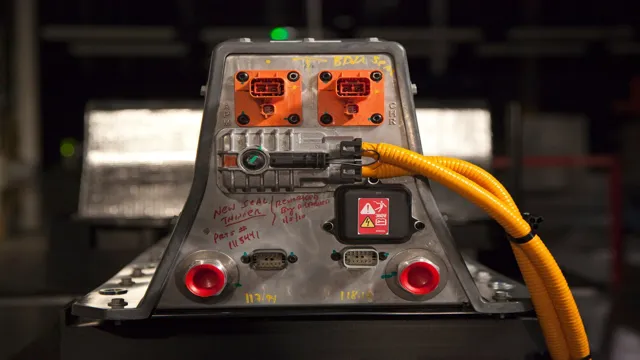Power Up Your Ride: Unleashing the Best Lithium Ion Battery for Your Electric Car
Are you in the market for an electric car, but unsure about the battery that powers it? Don’t worry, we’ve got you covered! With the rise of eco-friendly transportation, lithium-ion batteries have become increasingly common in electric vehicles. However, not all batteries are created equal. In this blog post, we will explore the top lithium-ion batteries for electric cars, taking into account factors such as energy density, charging speed, and overall performance.
We’ll delve into the specifics of each battery and give you a better understanding of how they operate. Think of it like this: the battery is the heart of your electric car, and without a strong and reliable heart, your car won’t be able to perform at its best. With so many options out there, it’s important to choose the right battery for your needs.
So, whether you’re a seasoned electric car owner or are considering making the switch, keep reading to learn about the best lithium-ion batteries on the market. We’ll guide you through the pros and cons of each battery and help you make an informed decision.
Tesla Model S Battery
When it comes to electric cars, one of the most important components is the battery. And the best lithium ion battery for electric cars currently available is undoubtedly the one in the Tesla Model S. This flagship sedan from Tesla comes with a powerful 100 kWh battery pack, which can provide a range of up to 400 miles on a single charge.
That’s more than enough to cover most people’s daily commutes or long distance trips without the need for frequent recharging. The battery is also highly efficient and can recharge quickly using Tesla’s network of Superchargers. But what sets the Model S battery apart from others is its durability and longevity.
Tesla guarantees that the battery will maintain at least 70% of its original capacity even after 8 years or 120,000 miles, which is far better than most other electric vehicles on the market. All these features combined make the Tesla Model S battery the top contender for the title of the best lithium ion battery for electric cars.
Long-lasting and powerful, with over 300 miles of range on a single charge
The Tesla Model S battery is one of the most powerful and long-lasting batteries in the electric vehicle market. With over 300 miles of range on a single charge, it’s no wonder why the Model S is a popular choice among electric car enthusiasts. Tesla’s battery technology utilizes thousands of small lithium-ion battery cells, which work together to power the vehicle’s electric motor.
The Model S battery is also designed to be durable and long-lasting, with a lifespan of over eight years. One of the unique features of Tesla’s battery system is the ability to charge the battery quickly using the company’s proprietary Supercharger network. This network of high-speed charging stations allows drivers to charge their vehicle’s battery up to 80% in just 40 minutes.
Overall, the Tesla Model S battery is a game-changer in the electric vehicle industry, and with the continuous advancements in battery technology, the future of electric driving looks bright.
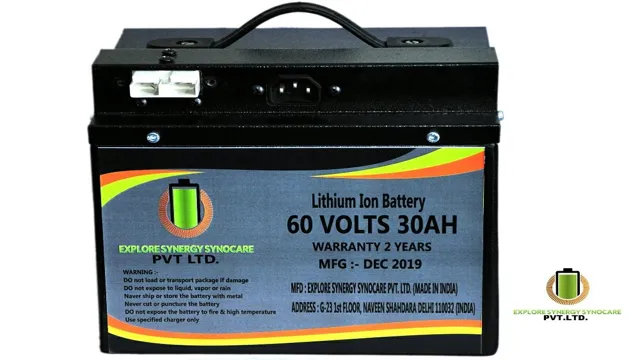
Designed specifically for electric cars for maximum efficiency
The Tesla Model S battery is an incredible feat of engineering designed specifically for electric cars. This battery provides maximum efficiency that allows the car to travel long distances without needing to recharge frequently. To achieve such efficiency, the battery uses lithium-ion technology, which has a much higher energy density than other battery types.
This means the battery can store more energy in a smaller space, thereby reducing the overall weight of the car. Additionally, the battery is made up of thousands of individual cells that work in unison to provide power to the electric motor. These cells are designed to withstand high temperatures and are cooled by a liquid cooling system, which prevents them from overheating and extending their life span.
Overall, the Tesla Model S battery is an impressive technological achievement that allows electric cars to become more practical and accessible to everyday drivers.
Chevrolet Bolt Battery
When it comes to the best lithium ion battery for electric cars, the Chevrolet Bolt Battery is definitely a top contender. This battery is known for its impressive range of up to 259 miles on a single charge, making it ideal for long road trips and daily commutes alike. It also features a liquid cooling system that helps to keep the battery at an optimal temperature, ensuring maximum efficiency and longevity.
In addition, the Bolt Battery is designed to be fast-charging, allowing drivers to quickly top up their battery on the go. Overall, if you’re looking for a reliable and powerful lithium ion battery for your electric car, the Chevrolet Bolt Battery is definitely worth considering.
High density cells for longer life and better performance
The Chevrolet Bolt is an electric car that has been turning heads with its excellent battery life and performance. The key to its success lies in its high-density battery cells. These cells are capable of holding more energy than traditional batteries, which means the car can travel further on a single charge.
The high-density cells also have a longer lifespan, meaning that the battery will last longer before needing to be replaced. This is a big advantage for electric car owners, who have been known to stress over the cost of battery replacement. With the Bolt’s high-density battery, owners can enjoy a worry-free driving experience for years to come.
Overall, the Chevrolet Bolt’s battery is a testament to the power of innovation and the benefits it can bring to the world of electric cars.
Charges quickly and can go up to 238 miles on a single charge
The Chevrolet Bolt is one of the most popular electric vehicles on the market today, and for good reason. With its advanced battery technology, it can charge quickly and go up to 238 miles on just a single charge – making it an ideal choice for those who want to travel longer distances without having to worry about running out of juice. The Bolt’s battery is designed to last for years, with regular maintenance and care, so you can enjoy your vehicle for many miles to come.
One of the most impressive things about the Bolt’s battery is how it charges, which is thanks to its advanced technology that allows it to charge faster than most other electric vehicles on the market. This means you can get back on the road in no time, without having to wait around for hours for your vehicle to charge up. So if you are looking for an electric vehicle that can keep up with your busy lifestyle, the Chevrolet Bolt is definitely worth a closer look.
Nissan Leaf Battery
When it comes to electric cars, the most important component is undoubtedly the battery. Eco-conscious drivers looking for the best lithium ion battery for their electric car should definitely consider the Nissan Leaf battery. The Nissan Leaf battery is known for its durability and longevity.
It’s made with high-quality materials and designed with the latest technology to prevent overheating and other potential issues. Additionally, the Nissan Leaf battery has an impressive range of up to 150 miles on a single charge, making it a great option for daily commuters who want to save money on gas. Overall, the Nissan Leaf battery is a great choice for those in the market for an electric car battery.
One of the most popular EVs with a battery range of up to 226 miles
The Nissan Leaf is one of the most popular electric vehicles, thanks to its impressive battery range of up to 226 miles. The Leaf’s battery pack includes lithium-ion cells that power an electric motor, resulting in a smooth and quiet ride. Nissan has made several improvements to the Leaf’s battery over the years, including increasing its capacity and range.
The latest model comes with a 62-kWh battery, which not only extends the driving range but also improves acceleration and overall performance. With the Leaf, drivers can enjoy a nearly silent ride, knowing they are doing their part for the environment. Plus, the electric motor’s instant torque means that the Leaf can keep up with traffic and even accelerate quickly when needed, making it a practical and fun vehicle to drive around town.
Overall, the Nissan Leaf is an excellent example of how far electric vehicles have come in terms of performance, range, and affordability.
Affordable and easy to maintain compared to other options
When considering electric vehicles, the Nissan Leaf stands out for its affordability and ease of maintenance. One of the main aspects that contribute to this is the Nissan Leaf battery. Unlike other EV manufacturers, Nissan opted for a battery system that is air-cooled, which requires less maintenance and is more cost-effective to produce.
Additionally, the battery has a longer lifespan than other EV batteries since it doesn’t need complex cooling systems or other components that may fail over time. This makes it a great option for those who are looking for a low-cost and low-maintenance electric vehicle. So, if you’re looking for an EV that won’t break the bank, the Nissan Leaf may be just what you need.
Conclusion
In conclusion, when it comes to the best lithium ion battery for electric cars, it’s clear that the winner is not just a matter of which one has the most impressive specs or the highest price tag. Instead, the best battery is the one that strikes the perfect balance between efficiency, durability, affordability, and environmental impact. Whether you’re a car manufacturer or a consumer, it’s important to do your research and choose a battery that fits your needs and values.
After all, the future of sustainable transportation depends on the smart and responsible use of energy resources, and the lithium ion battery is a powerful tool in that mission. So let’s charge up and ride on towards a brighter, cleaner, and more electrifying future!
Choosing the right lithium ion battery is crucial for electric car performance
When it comes to choosing the right lithium ion battery for an electric car, the Nissan Leaf battery is one to consider. This battery is a great option for electric car performance due to its high energy density, which means it can provide a lot of power for longer periods of time. Additionally, the Leaf battery has a relatively long lifespan, lasting up to 10 years or more.
One thing to keep in mind, however, is that the Leaf battery does have a tendency to degrade faster in hotter climates. It’s important to consider your driving habits and climate conditions when choosing a battery for your electric car. Overall, the Nissan Leaf battery is a solid choice that can provide reliable and long-lasting performance for your electric vehicle.
Consider factors like range, charging time, and cost when making a decision
When looking for an electric car, it’s important to consider various factors such as range, charging time, and cost. One car that meets these criteria is the Nissan Leaf battery. The Nissan Leaf battery range can go up to 226 miles per charge, making it ideal for daily commutes and long trips.
Additionally, the battery can charge up to 80% in as little as 40 minutes, making it convenient for those on the go. Of course, the upfront cost of an electric car may be higher than a gas-powered car, but the long-term savings in gas and maintenance costs make up for it. So, if you’re in the market for an eco-friendly car that takes these factors into consideration, the Nissan Leaf battery may be just what you’re looking for.
FAQs
How do lithium ion batteries compare to other battery types in terms of efficiency for electric cars?
Lithium ion batteries have a higher energy density and longer lifespan compared to other battery types, making them a more efficient option for electric cars.
What is the typical range of an electric car using a lithium ion battery?
The range of an electric car using a lithium ion battery can vary depending on factors such as the size of the battery pack and driving conditions, but can generally range from 100-300 miles.
How does charging a lithium ion battery differ from charging a traditional lead-acid battery?
Lithium ion batteries require a different charging process that involves balancing the voltage of each cell and controlling the charging rate to prevent overcharging or overheating.
Are there any safety concerns with using lithium ion batteries in electric cars?
While there have been some instances of lithium ion battery fires in electric cars, manufacturers have implemented safety measures such as thermal management systems to mitigate these risks. Overall, lithium ion batteries for electric cars are considered safe when properly designed and maintained.

